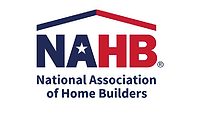NKBA Reports Surge in Home Renovations

Homeowners are taking on larger projects but there remains higher demand for lower-priced products and finishes, according to the National Kitchen & Bath Association (NKBA) and John Burns Real Estate Consulting (JBREC), which released the Q4 2020 Kitchen & Bath Market Index (KBMI).
“We’re seeing an incomparable surge in homeowners looking to rearrange floor plans, tear out complete kitchens, baths and other rooms to make space for increased activity within the home, and generally create a space that better suits their evolving needs,” said NKBA CEO Bill Darcy. “Our industry’s greatest challenge will be operational, as our members aim to meet growing demand from homeowners with an unmatched appetite for remodeling.”
Kitchen and bath industry sales grew 2% from third quarter 2020 and 4% year-over-year from fourth quarter 2019. Retail sales are experiencing especially impressive growth, with average sales up 7.9% from last year, followed by manufacturing (5.5%), building/construction (3.8%) and design (2.4%).
The KBMI reached a rating of 65, representing a third consecutive quarter-over-quarter increase. The index stood at 61.9 in Q3 2020 and was below 50 in both the first and second quarters of last year. Scores above 50 indicate expansion and scores below, contraction. All indicators of this report have improved over the last several quarters — with kitchen and bath market respondents ranking current conditions at 59.8; future conditions at 72.7; and the health of the industry (measured on a scale of one to 10) at 7.1, just below the pre-pandemic 7.2 registered in Q4 2019.
Supply-chain disruption, cost of materials, concerns around keeping COVID-19 under control and availability of skilled labor are the top concerns of industry professionals. More than half (56%) say COVID-19 has worsened the pre-existing labor shortage by fueling demand, with 58% reporting their pipelines are larger now than at the same time in 2019.
The NKBA has identified the following consumer trends via the latest KBMI report:
- The shift to smaller project sizes seen earlier in the year reverses, as homeowners are undertaking larger projects, including expanding and rearranging floorplans or creating dedicated offices, to increase home functionality. This recalibration of priorities is contributing to anticipated business growth across sectors, as more complex jobs require a level of professional help not seen in 2020’s DIY boom.
- In fact, pandemic circumstances are actually driving demand to 60% of kitchen and bath companies, with members reporting that consumers are beginning the remodeling projects they planned while sheltering in place in 2020.
- Still, there remains higher demand for lower-priced products and finishes. Homeowners also seek out wellness design, perhaps unsurprisingly given the focus on physical and mental health spurred by the pandemic.
Each sector of the kitchen and bath market is impacted by current demand in different ways, though all report supply-chain disruptions as a significant, negative impact of COVID-19 on their business. Other key takeaways include:
- Retail sales see strong growth across all price points, though wood items like cabinets are under inflationary pressure due to the lumber market. Regardless, retailers have the most positive outlook on the industry, ranking the KBMI highest of any group at 71.7.
- Demand continues to exceed supply for manufacturers, most notably in cabinetry and appliances, but fewer than one in five (19%) say supply-chain disruptions are significantly impacting their business.
- Building and construction firms report cancellations and postponements are declining, with more than half (58%) reporting zero in Q4, compared to 49% in Q3. Builders are more likely to report supply-chain disruptions as significantly impacting their business (23%) compared to other sectors.
- Half of designers say demand for future projects is higher than it was pre-COVID, while consumers’ finances have less of a negative impact as economic confidence has continued to improve over the last several quarters.
For more information, visit nkba.org.
Looking for a reprint of this article?
From high-res PDFs to custom plaques, order your copy today!




